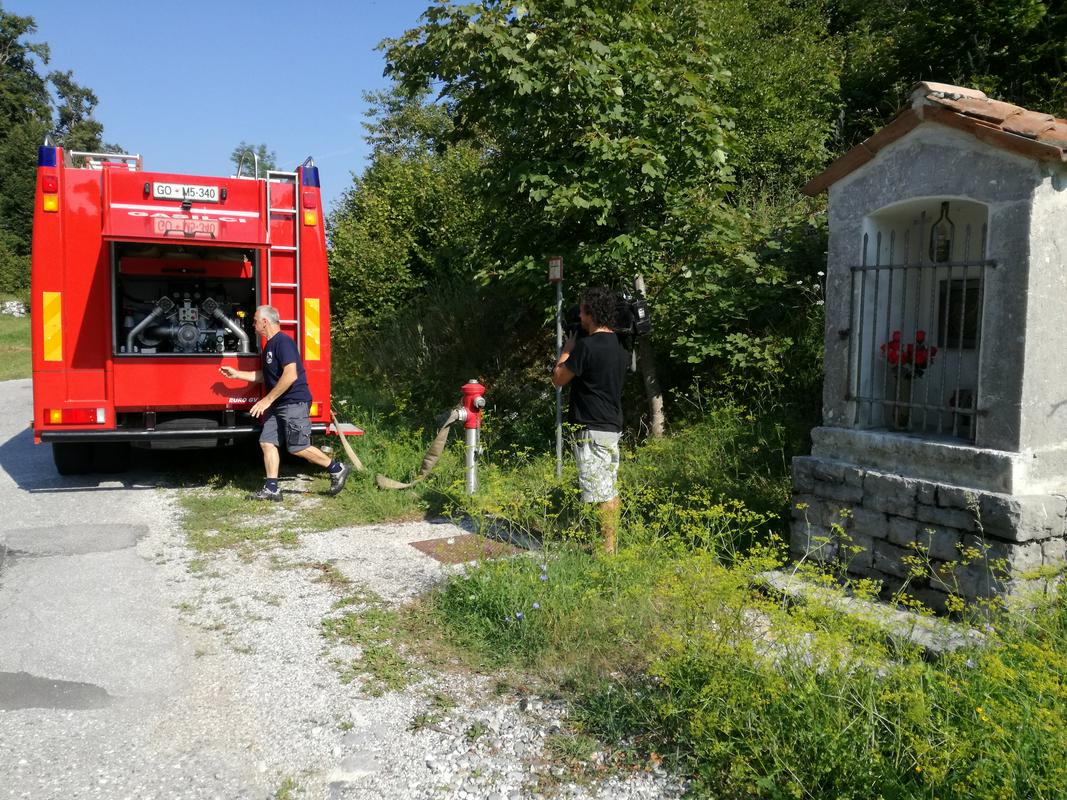
Several villages and other settlement on the Trnovo-Banjšice Plateau still lack a water supply system. The only solution for people and livestock in the area comes in the form of firefighters’ water tankers. The Municipality of Nova Gorica subsidizes the transports of water. On average, more than 100 take place every year.
The remote settlements on the Čepovan Plateau depend entirely on the weather—and firefighters—for their water. Homes here collect rainwater, but during the dry summer months, there isn't enough of it. They can only dream of a water supply system. Mladen Gavrič: "We won’t have a water supply system here for many years. We are four kilometers away from the main water supply pipes. To connect us, crews would have to dig through rocks and stone – all on steep hillsides. Too few people still persevere here for them to lay pipes across this unforgiving limestone terrain. People living on the plains, above sand and soft soil are lucky. For us, a water supply system is utopia."
The bills come after the firefighters
After the water from firefighters’ tanks is transferred to the homes’ rainwater tanks, an inventory report follows. Home owners do not have to pay the transportation of the drinking water because the project is subsidized by the local municipality.
Water for livestock
Since he retired, firefighter Branko Povšič has been transporting water to the most remote settlements on the plateau: "Our villages are unusually spread out. Lokovec is divided into the lower, middle, and upper parts of the village. Some say that it's Slovenia's longest village. The roads are mostly paved, but they are narrow and steep. It’s virtually impossible for our big water tanker to meet oncoming vehicles. I must be very careful. But I eventually make my way to even the most remote homes. Things are more difficult when farmers ask for water for their livestock. Just yesterday, I transported water for a farmer's cows at the village of Vrše. The forest road was extremely steep. You really must master the fine details of driving a fire truck if you want to get there safely. But all that work pays off when the farmer is happy, and the animals finally get their chance to quench their thirst."

































































